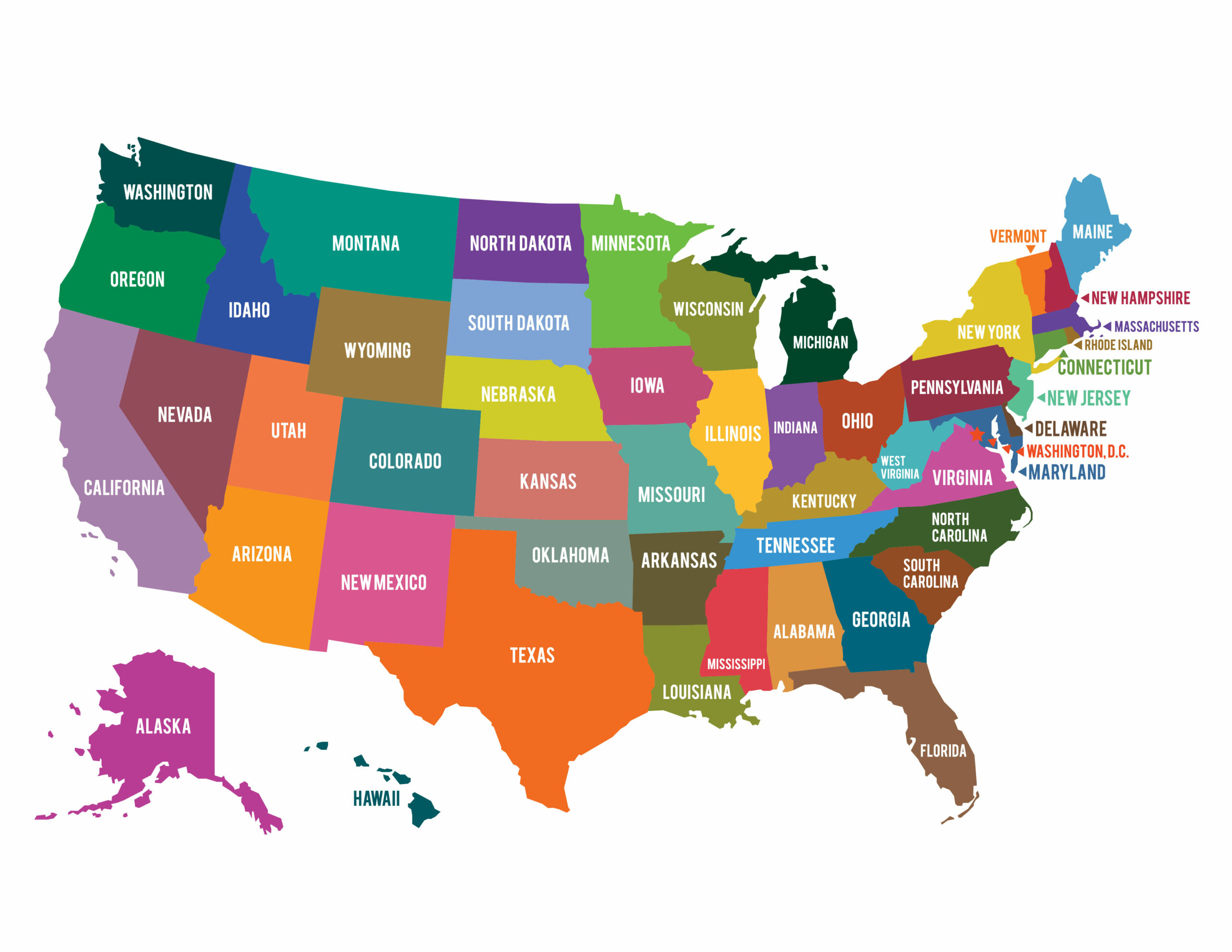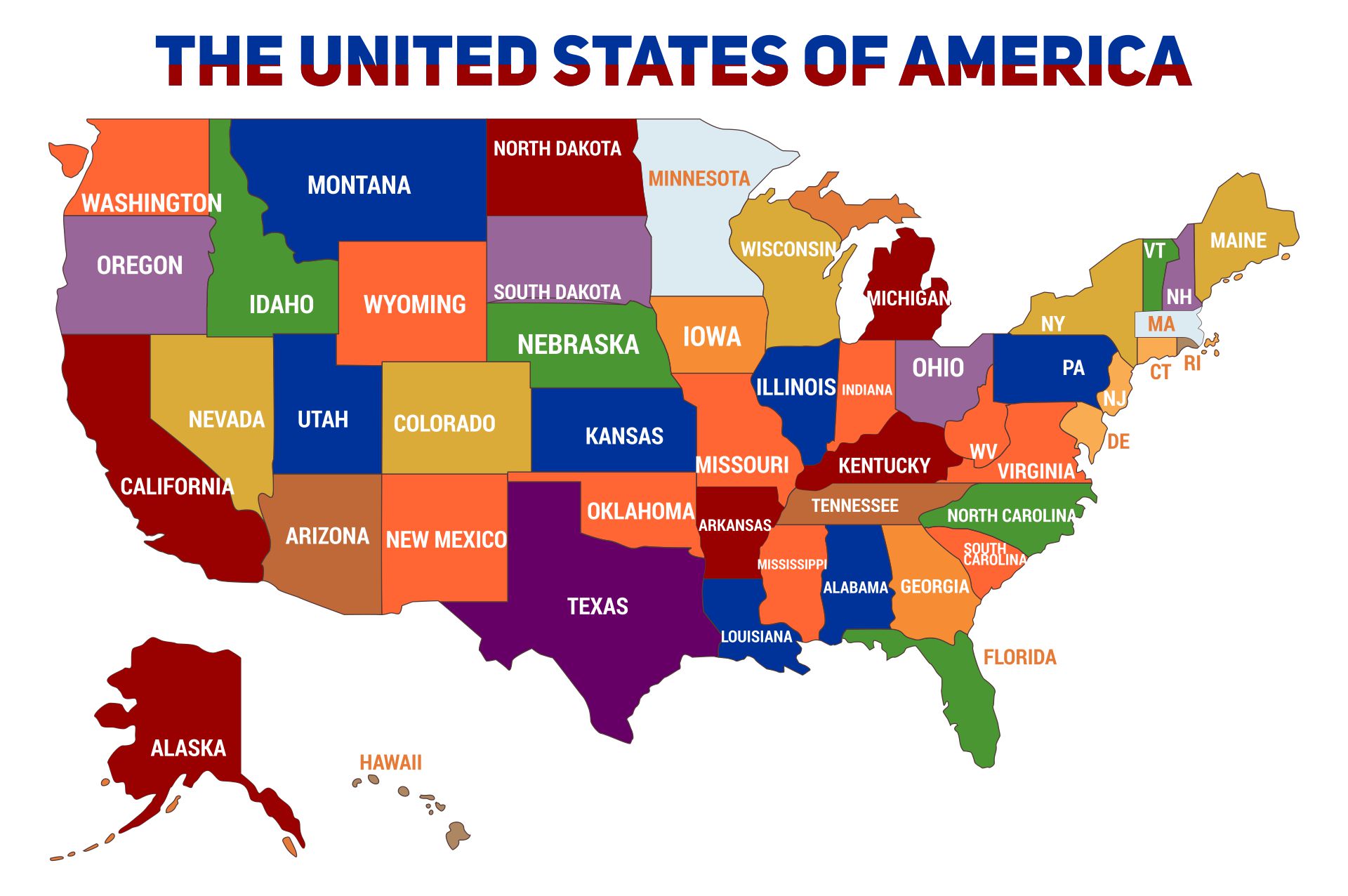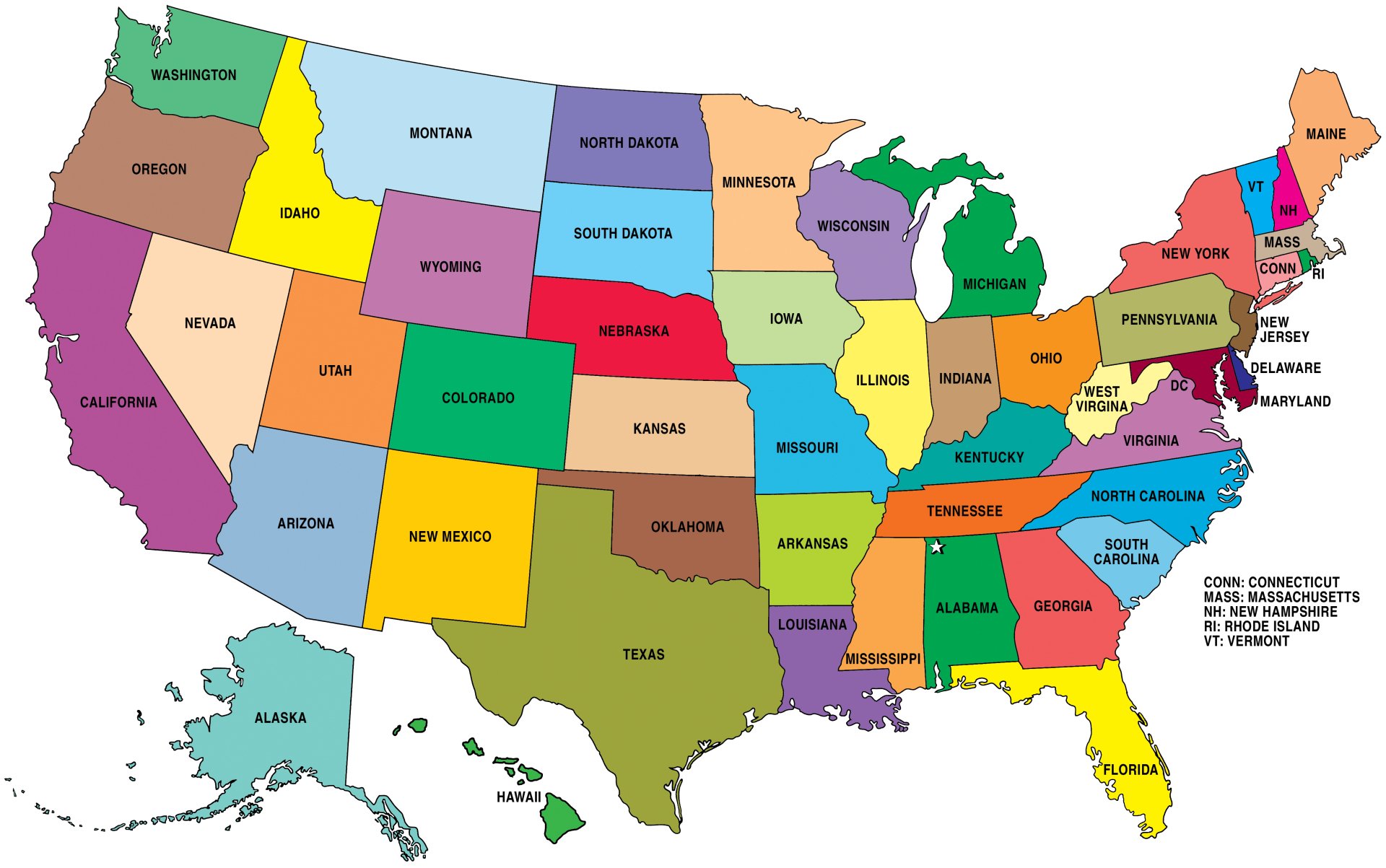Figuring out where abortion is legal across the United States can feel a bit confusing right now. After all, laws about this topic have changed quite a lot, especially in recent times. People often want to know what the rules are in their home state, or maybe even in a place they plan to visit. It's a very important subject for many individuals and families, so getting clear, accurate information is key, you know.
This article aims to shed some light on the current situation. We'll talk about the different ways states approach abortion access. It's not always a simple "yes" or "no" answer, as there are many shades of gray and various rules that apply. Understanding these differences can help you make informed choices or simply stay aware of the legal picture.
We'll look at the groups of states where abortion is generally protected, those with many rules, and the places where it is almost entirely prohibited. This information is always changing, so it's good to keep up with the latest updates. We want to give you a clear picture of this complex topic, in a way that feels easy to grasp.
Table of Contents
Understanding State Laws on Abortion
States Where Abortion Access is Broadly Protected
States with Significant Abortion Restrictions
States with Near-Total Abortion Bans
States with Evolving Abortion Laws
Why State Laws Matter So Much
Finding Reliable State Information
Common Questions About Abortion Legality
Staying Informed About Abortion Laws
Understanding State Laws on Abortion
The legal landscape for abortion access varies quite a bit from one state to another. It's not a single, nationwide rule, which is that one of the main reasons for confusion. Instead, each state has its own set of laws, and these can be very different. Some states have taken steps to protect abortion access, making it widely available. Other states have put in place many rules that make it harder to get an abortion. Then, there are some states where abortion is almost entirely outlawed. This patchwork of laws means that where you live, or where you might travel, really impacts access.
It's also worth remembering that this situation is not static. Laws can change, sometimes quite quickly, due to court rulings, new legislation, or even public votes. So, what is true today might be different tomorrow, which makes staying informed a bit of a challenge. We will explore the general categories of states, giving you a framework for understanding the current situation.
States Where Abortion Access is Broadly Protected
In some states, the right to an abortion is largely protected by state law or court decisions. These states generally allow abortion up to a certain point in pregnancy, often around the time a fetus becomes able to survive outside the womb, which is usually around 24 weeks. They might also have fewer requirements like waiting periods or parental consent rules. For example, a state in this category might have laws that specifically say abortion is a protected health care right. This means that people seeking abortion care in these places often have more options and fewer hurdles to overcome, too it's almost a given.
These states often do not require a waiting period between a person's first appointment and the abortion procedure itself. This means someone could potentially get care on the same day they visit a clinic, if appointments are available. They also typically do not require minors to get permission from their parents or a judge to have an abortion. This approach aims to make abortion care as accessible as possible within their borders. Many of these states have even passed laws to further protect providers and patients from legal action by other states, which is quite a significant step.
The goal in these places is usually to ensure that anyone who needs an abortion can get one without too much difficulty. They might have more clinics and resources available as well. It's about maintaining broad access to reproductive health services. This general protection often comes from state constitutions or specific legislative actions that affirm abortion rights, which is how they maintain their current status.
States with Significant Abortion Restrictions
Then there are states where abortion is legal, but with many rules and restrictions that make it harder to get. These rules can include things like mandatory waiting periods, which often mean a person has to visit a clinic twice – once for a consultation and then again 24 or 48 hours later for the procedure. This can be a real burden, especially for people who have to travel far or take time off work, you know. It adds extra steps and delays to the process.
Another common restriction in these states is parental consent or notification laws for minors. This means that if someone under 18 wants an abortion, they might need permission from one or both parents, or at least have their parents informed. If they can't get parental consent, they might have to go through a judicial bypass process, which involves asking a judge for permission. This can be a very difficult and intimidating experience for young people, as a matter of fact.
These states also tend to have earlier gestational limits for abortion, meaning abortion might only be legal up to, say, 15 or 18 weeks of pregnancy, rather than later in the second trimester. They might also have stricter clinic regulations, which can lead to fewer clinics being open and longer wait times for appointments. So, while abortion is technically legal, these rules can create significant barriers for people seeking care, which is the main idea behind them.
Some states in this category might also have laws requiring a person to receive certain information before an abortion, like details about fetal development or adoption alternatives. These laws are often designed to make the decision more difficult or to discourage abortion. It's a very different environment compared to states with broad access, and it can be quite challenging for those who need care.
States with Near-Total Abortion Bans
A number of states have implemented laws that effectively ban almost all abortions. In these places, abortion is largely illegal from the moment of conception or very early in pregnancy. There are usually very few exceptions to these bans. The primary exception that is sometimes allowed is to save the life of the pregnant person, which is a critical point. However, even this exception can be narrowly defined, making it hard for doctors to know when they can legally provide care, basically.
Some of these states have "trigger bans" that went into effect automatically after a certain Supreme Court decision. Others have passed new laws to ban abortion outright. In these states, people who need abortion care often have to travel to another state where it is legal, which can be a huge financial and logistical challenge. This means that access to abortion is essentially non-existent for most people living there, which is a very stark reality.
There are very few, if any, clinics providing abortion care in these states. Doctors and other medical professionals in these areas face severe legal risks if they provide abortions outside of the very limited exceptions. This creates a chilling effect on medical care, as a matter of fact. The legal consequences for providers can include loss of license, large fines, and even prison time, which is a serious concern for them.
It is important to understand that even within these bans, there can be slight variations. Some states might have exceptions for rape or incest, but these are often rare and come with strict reporting requirements that can be difficult to meet. The overall picture in these states is one of very limited or no legal abortion access, which forces many people to seek care elsewhere or carry unwanted pregnancies to term, which is often a difficult situation.
States with Evolving Abortion Laws
Finally, there's a group of states where the legal situation around abortion is constantly changing. These are places where laws might be challenged in court, or where new legislation is being debated. A state might have a ban that is currently blocked by a court order, meaning abortion is temporarily legal while the case moves through the legal system. Or, there might be ongoing efforts to pass new restrictions or, conversely, to protect abortion access through ballot initiatives, which is a way for citizens to vote directly on laws, you know.
This constant flux creates a lot of uncertainty for both patients and providers. What is legal one day might be challenged or changed the next. This makes it very hard for people to plan or to know their rights. Clinics in these states often operate under a cloud of legal ambiguity, which is a tough situation. They have to stay incredibly up-to-date on every legal development, which can be quite a task.
For example, a state might have a law that bans abortion after six weeks, but a judge might put a temporary stop to that law while a lawsuit proceeds. This means that for a period, abortion remains legal, but there's always the possibility that the ban could go into effect later. This back-and-forth makes it a very unpredictable environment for reproductive healthcare, which is quite stressful for everyone involved.
People in these states often have to check the news regularly or consult with legal experts to understand the current rules. The legal battles can be lengthy and complex, involving multiple court levels. This means that the future of abortion access in these states remains uncertain, which is a big concern for many residents. It's a situation that requires constant monitoring, really.
Why State Laws Matter So Much
The fact that abortion laws vary so much from state to state has huge consequences for people across the country. It means that your access to essential healthcare can depend entirely on your zip code, which is a significant issue. If you live in a state with a near-total ban, but need an abortion, you might have to travel hundreds or even thousands of miles to another state where it's legal. This travel involves significant costs for transportation, lodging, and time off work, which can be prohibitive for many, you know.
This creates a situation where wealthier individuals or those with more resources have greater access to care, while those with fewer resources are often left without options. It really highlights how economic status can impact healthcare access. The burden falls disproportionately on low-income individuals and communities of color, who often face additional barriers to travel and care, which is a very serious problem.
Moreover, the varying laws can cause confusion and fear among patients and healthcare providers alike. Doctors might be hesitant to provide care, even in emergency situations, if they are unsure about the legal ramifications in their state. This can lead to delays in care that put people's health at risk. It creates a climate of uncertainty that affects the entire healthcare system, which is not ideal at all.
The differences in state laws also mean that people in one state might have vastly different reproductive futures than those in another. It underscores the importance of understanding the specific laws in your area, and also knowing where to look for help if you need to travel for care. It's a very real impact on people's lives, basically, that affects their choices and their well-being.
Finding Reliable State Information
Getting accurate and up-to-date information about state laws, especially on sensitive topics like abortion, is really important. Just as you can find comprehensive details about state flags, capitals, and area codes on our site, understanding each state's legal landscape is also quite important, you know. Our site, for instance, offers a wealth of general state information, like details about state abbreviations and symbols, helping you get to know the fifty states better. We also have pages that can help you explore the diverse features of each US state, which is pretty neat.
When it comes to specific legal matters, though, you need to look for sources that focus specifically on current legislation and court rulings. Laws change frequently, so relying on old information can be misleading. Always look for websites that are known for tracking legal developments in real time. These sources often provide detailed maps and summaries of laws by state, making it easier to understand the current situation, which is very helpful.
Organizations that advocate for or against abortion rights often have excellent resources that track state laws. They are usually very diligent about updating their information as soon as new laws are passed or court decisions are made. Legal research organizations and university centers that study reproductive law are also great places to find reliable data. They often provide in-depth analysis that can help you grasp the nuances of complex laws, as a matter of fact.
It's always a good idea to cross-reference information from a few different reputable sources to ensure accuracy. Because the topic is so politically charged, misinformation can spread quickly. Taking the time to verify what you read is a smart move. Staying informed means looking at trustworthy, regularly updated legal resources, which is the best way to keep up with these changes.
Common Questions About Abortion Legality
Can a state ban abortion entirely?
Some states have indeed passed laws that ban abortion almost completely. These bans usually have very limited exceptions, such as to save the life of the pregnant person. However, whether these bans are actually in effect can depend on ongoing court challenges. Sometimes a judge might temporarily block a ban, so abortion remains legal in that state until the court case is resolved. It's a very dynamic situation, you know.
Do all states have waiting periods for abortion?
No, not all states have waiting periods. Many states do require a person to wait a certain amount of time, often 24 or 48 hours, between their first appointment and the abortion procedure. But other states do not have this requirement, allowing people to receive care on the same day if possible. The presence of a waiting period is one of the key differences in abortion access from state to state, which is quite important to know.
Is it legal to travel to another state for an abortion?
Yes, it is currently legal to travel from one state to another to obtain an abortion where it is legal. People often travel to states where abortion access is protected if it is banned or heavily restricted in their home state. This interstate travel is a recognized right, and there are organizations that help people with the logistics and costs associated with traveling for care. It's a critical option for many individuals, basically, who need to access services not available locally.
Staying Informed About Abortion Laws
Keeping up with abortion laws is a continuous process because they are always changing. The legal landscape is quite fluid, with new court cases, legislative sessions, and public votes constantly shaping what is allowed. For anyone interested in this topic, staying current means regularly checking reliable sources that track these developments. It’s not a "set it and forget it" kind of thing, really, since the rules can shift without much warning.
For the most up-to-date and detailed information on abortion laws in each state, it's a good idea to consult reputable organizations that specialize in tracking reproductive health legislation. Groups like the Guttmacher Institute provide comprehensive, state-by-state data and analysis, which is incredibly helpful. You can find their resources by searching for "Guttmacher Institute state abortion laws" online, which is an excellent starting point for detailed information.
Understanding which states have abortion legal involves more than just a simple list. It means grasping the nuances of gestational limits, waiting periods, parental consent laws, and the presence of ongoing legal battles. This knowledge helps individuals make informed decisions about their health and their rights. By staying informed, you can better understand the current situation and how it impacts people across the country, which is quite a significant thing to do.



Detail Author:
- Name : Fleta Hill
- Username : cyrus03
- Email : ericka34@hotmail.com
- Birthdate : 1977-11-07
- Address : 47279 Skyla Plains Apt. 188 New Verdieberg, LA 25016-1213
- Phone : 401-601-1562
- Company : Frami Inc
- Job : Preschool Education Administrators
- Bio : Eum qui et quis ducimus aut accusantium quia. Dolorum aut soluta eum id magni est. Culpa sed velit quia facilis omnis optio aperiam. Tempore est harum a quas tempora vel.
Socials
facebook:
- url : https://facebook.com/ursula_dev
- username : ursula_dev
- bio : Et eveniet sed est officia exercitationem.
- followers : 224
- following : 179
instagram:
- url : https://instagram.com/ursula_bergnaum
- username : ursula_bergnaum
- bio : Numquam est nostrum repellat sequi. Dolorem culpa enim id beatae quo et.
- followers : 6133
- following : 1385
tiktok:
- url : https://tiktok.com/@ubergnaum
- username : ubergnaum
- bio : Qui ab eos qui quis natus est.
- followers : 3554
- following : 1133
linkedin:
- url : https://linkedin.com/in/ubergnaum
- username : ubergnaum
- bio : Aut similique tempora ducimus magnam qui.
- followers : 6034
- following : 2580
twitter:
- url : https://twitter.com/ursulabergnaum
- username : ursulabergnaum
- bio : Et totam porro rerum. In voluptas incidunt eligendi culpa molestias fugiat. Sit dolorem delectus fugiat quaerat et eos soluta.
- followers : 4273
- following : 1780

